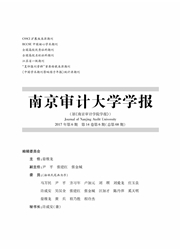

 中文摘要:
中文摘要:
在采用主成分分析法合成软实力综合指标构建了两阶段回归模型,运用面板数据GMM估计方法就软实力对房价的影响进行估计后发现,中国35个大中城市的软实力对城市房价均具有显著的正向作用,且这种影响从东部到西部呈现出逐渐减弱的态势。也就是说,在全国范围内,城市软实力对房价均具有显著的正向影响,且不同地区的城市软实力对房价的作用程度有所差别。由此可见,城市的人文社会因素、生态环境质量、交通区位条件对城市商品房价格的影响较为显著,对城市软实力的日益重视决定着中国城市人口的居住选择。
 英文摘要:
英文摘要:
This paper investigates the impact of soft power on urban housing prices with panel data 35 large and medium cities in China during 2007--2011. Considering the inherent link between urban soft power and hard power, this paper applies principal component analysis to construct a comprehensive index of soft power, establishes the two-stage regression model, and uses the panel data GMM method to estimate the impact of soft power on housing prices. The study finds that,in 35 large and medium cities of China, the soft power has significantly positive effects on urban housing prices, and the influence gradually decreases from the east to the west cities. Nationwide, the soft power has significantly positive influence on urban house prices. And the role of soft power on the regional housing prices varies in extent. Apparently, the social humanities, ecological environmental quality and traffic conditions all have significant influence on urban housing price, so increasing importance attached to the urban soft power determines the residential choice of the urban population in China.
 同期刊论文项目
同期刊论文项目
 同项目期刊论文
同项目期刊论文
 期刊信息
期刊信息
